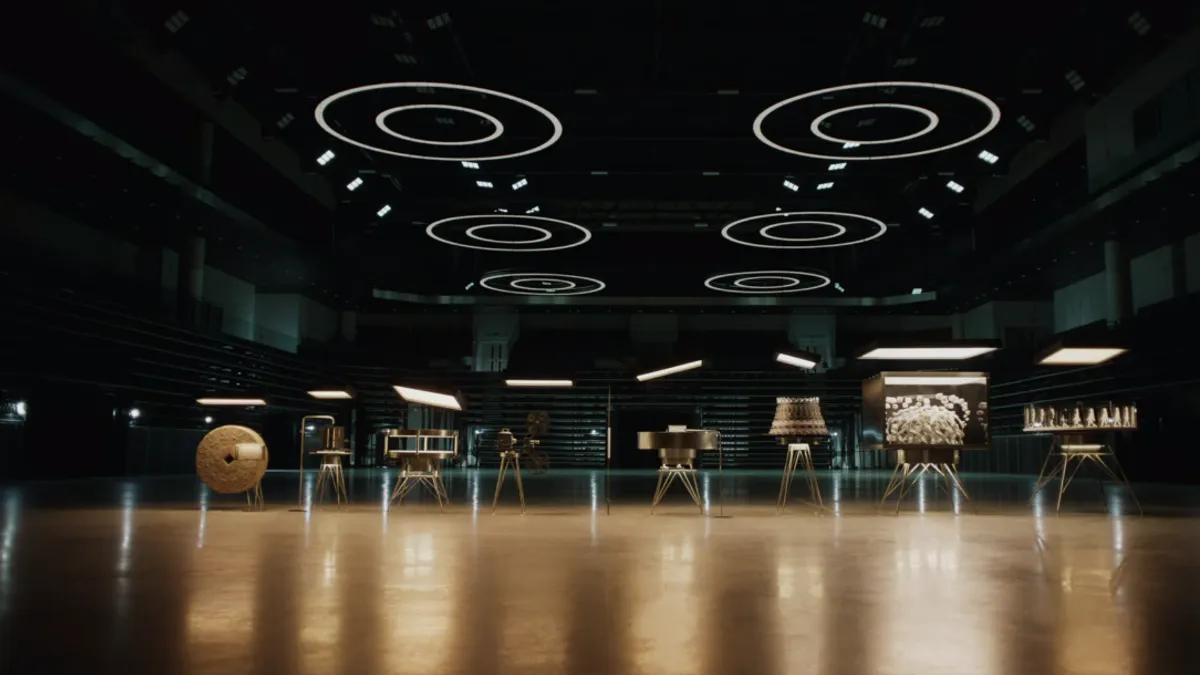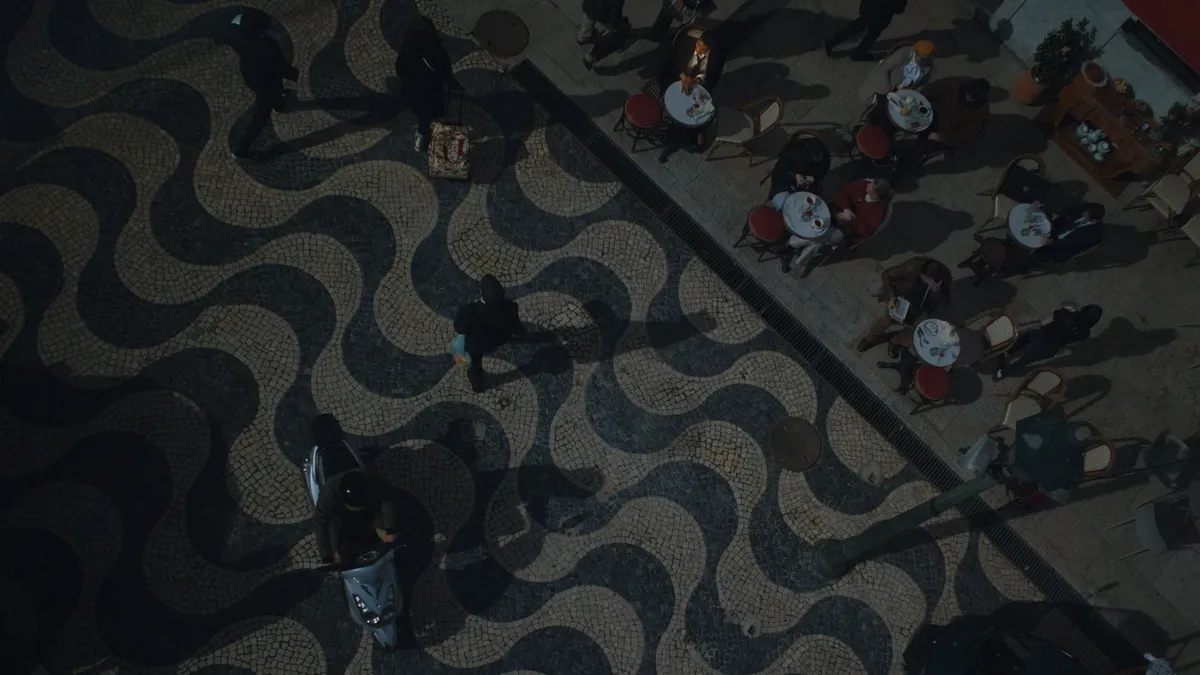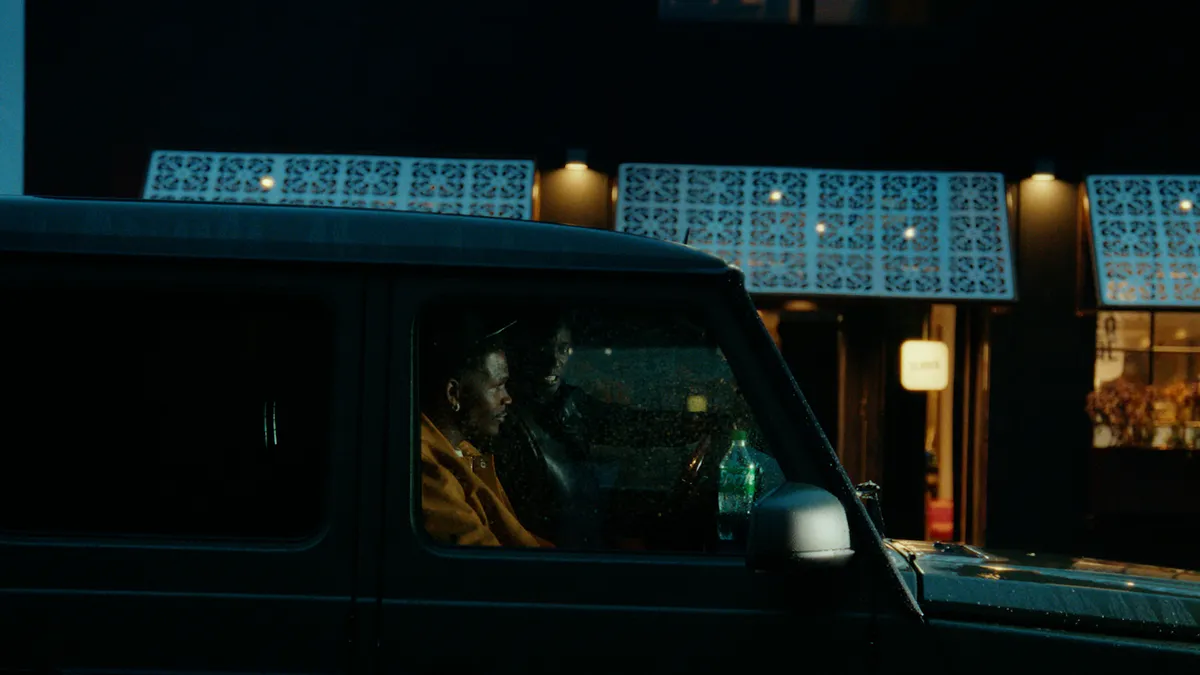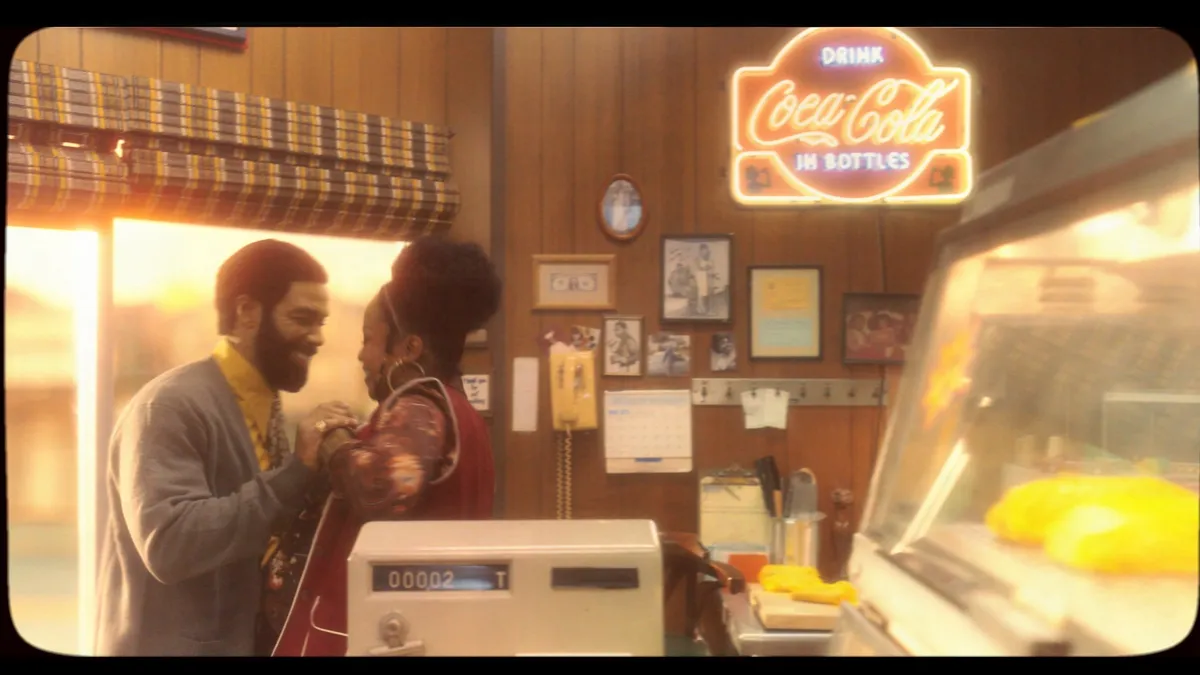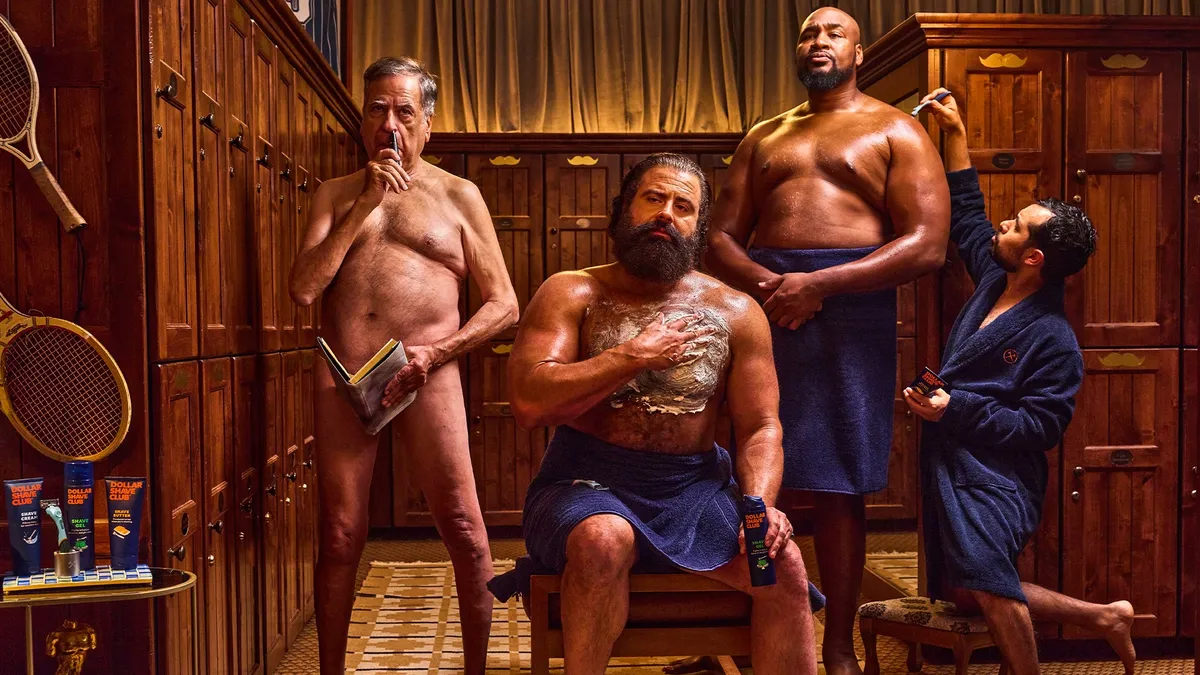Campaign Trail is our analysis of some of the best and worst new creative efforts from the marketing world. View past columns in the archives here.
Volkswagen is honoring one of the greatest human inventions in history with an artsy, layered campaign called "The Wheel." Much like the classic visual depicting mankind's long journey from primate to Homo sapiens, the carmaker's cinematic ad walks viewers through how the revolutionary design has shaped the world of transportation and beyond.
The 90-second spot chronicles the wheel's conception and its later uses in bicycles, buggies, film and animation, culminating with Volkswagen's first electric vehicle debuting this spring. Just before the ad wraps, the new ID.4 electric SUV appears beneath a fresh tagline, "History is made, when it's made for everyone." The line was crafted to express Volkswagen's mission of democratizing electric vehicles (EV) with its new model and bringing them into the mainstream, according to Jono Flannery, creative director at agency Johannes Leonardo, which produced the campaign.
While Volkswagen is far from the first car brand to invent an EV, its lower price point ($40,000) compared to rivals makes its model more accessible to the average consumer.
"Creatively, it's something we felt was true of Volkswagen and lends itself to all these devices — zoetropes, locomotives, now electric cars — that didn't make history until they were used by the masses," Flannery said. "No one can name the first car, but everyone knows the Ford Model T."
A pivotal moment
Aptly named, "The Wheel" premiered on Jan. 8 during the NFL playoffs and will run on TV and social media ahead of the vehicle's release this spring. Premiering the campaign months before the car hits dealerships provides a solid runway for Volkswagen to tease the new model through major TV events like sports playoffs, while giving potential customers time to learn more, schedule a test drive or pre-order.
Volkswagen's creative work has always been bold, according to Flannery, who noted that putting the ID.4 in the context of other significant inventions related to the wheel signals how the model could become a pivotal moment in transportation.
"It feels like we really are on the precipice of the electric switch," he said. "There are plenty of other electric cars out there, we know that. But this is the first electric car that's a Volkswagen, and that alone means something."
"Apart from it being artistic and beautiful to watch, it also has an extra level of respect for the audience, and it is layered to be watched more than once," the creative director said.
Volkswagen's Chief Designer Klaus Bischoff last year gave a talk to the brand's creative team about his philosophy on craftsmanship, Flannery explained. Attempting to visually portray that brand ethos of craftsmanship, the team's arts department embarked on hand-making a series of zoetropes — 19th-century devices that spin images to create moving pictures — and an even more rudimentary machine called a phenakistoscope to appear in "The Wheel." These subtle cameos of archaic devices, layered with references to centuries' worth of developments in mobility and film, are a lot to pack into 90 seconds for the average viewer.
Volkswagen drivers, however, are more "more discerning," according to Flannery, who said consumers who buy the brand can afford more expensive rivals but choose Volkswagen because they see it as a smart purchase.
"One of the tenets of Volkswagen we've also tried to champion is respect for the audience," Flannery said. "We didn't feel the need to shout and explain things, and that's why we can be a bit more subtle with some of these motifs."
'A very honest approach to where we've been'
While the campaign is the carmaker's first of the year, it harkens back to 2020's farewell to the Volkswagen Beetle. The final chapter of the classic model last January included a campaign on TV and social media, and a 90-second animation paired with a youth chorus cover of The Beatles' "Let it Be" and cameos of celebrities like Andy Warhol, Kevin Bacon and Andy Cohen. Johannes Leonardo developed "The Last Mile" campaign to honor the Beetle and set the stage for Volkswagen’s next generation of automobiles.
"We did an ad for a car you can't buy anymore because we felt it was so important to recognize how big a culture the Beetle has been," Flannery said.
In the same way, the new ID.4 represents a major shift for the company at large, he added. Volkswagen announced plans in 2019 to go carbon-neutral by 2050 and ramp up production of electric cars in next 10 years. Weaving in historical context for both the Beetle farewell and Volkswagen's latest EV spot was crucial from a creative perspective, but does not represent a broader trend for the brand moving forward, according to Flannery.
"Apart from it being artistic and beautiful to watch, it also has an extra level of respect for the audience, and it is layered to be watched more than once."

Jono Flannery
Creative director, Johannes Leonardo
"We've taken a very honest approach to where we've been and where we're going as a brand," he said, referencing the "Hello Light" campaign that in 2019 illuminated how Volkswagen was emerging from its diesel emissions scandal years prior.
Just before the coronavirus pandemic shut down much of the world last spring, the carmaker debuted a video series by Johannes Leonardo starring actor Paul Giamatti as Kieran Culkan's celebrity accountant. The playful spot, titled "The Accountant," was timed to tax season and highlighted how Volkswagen's Atlas Cross Sport SUV was a modest luxury vehicle that is worth the investment. That ad series was part of the brand's "Drive Something Bigger Than Yourself" platform that promotes sustainability and social responsibility, and marked an entry into Volkswagen's push against wealth culture, according to Flannery.
"With 'The Wheel,' we wanted to capture the size of this moment — it's a huge deal for VW — but in a sort of understated, confident approach that we can flex because of the brand history," he said.



